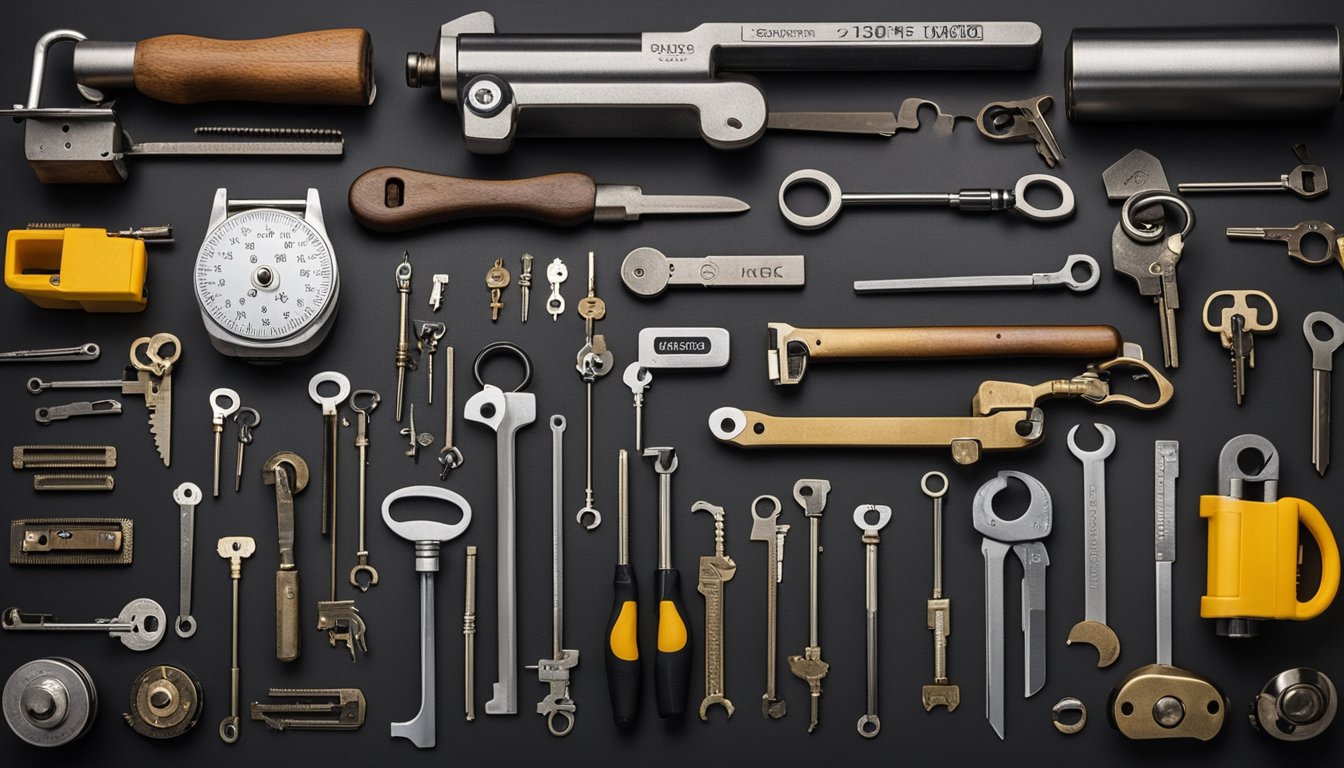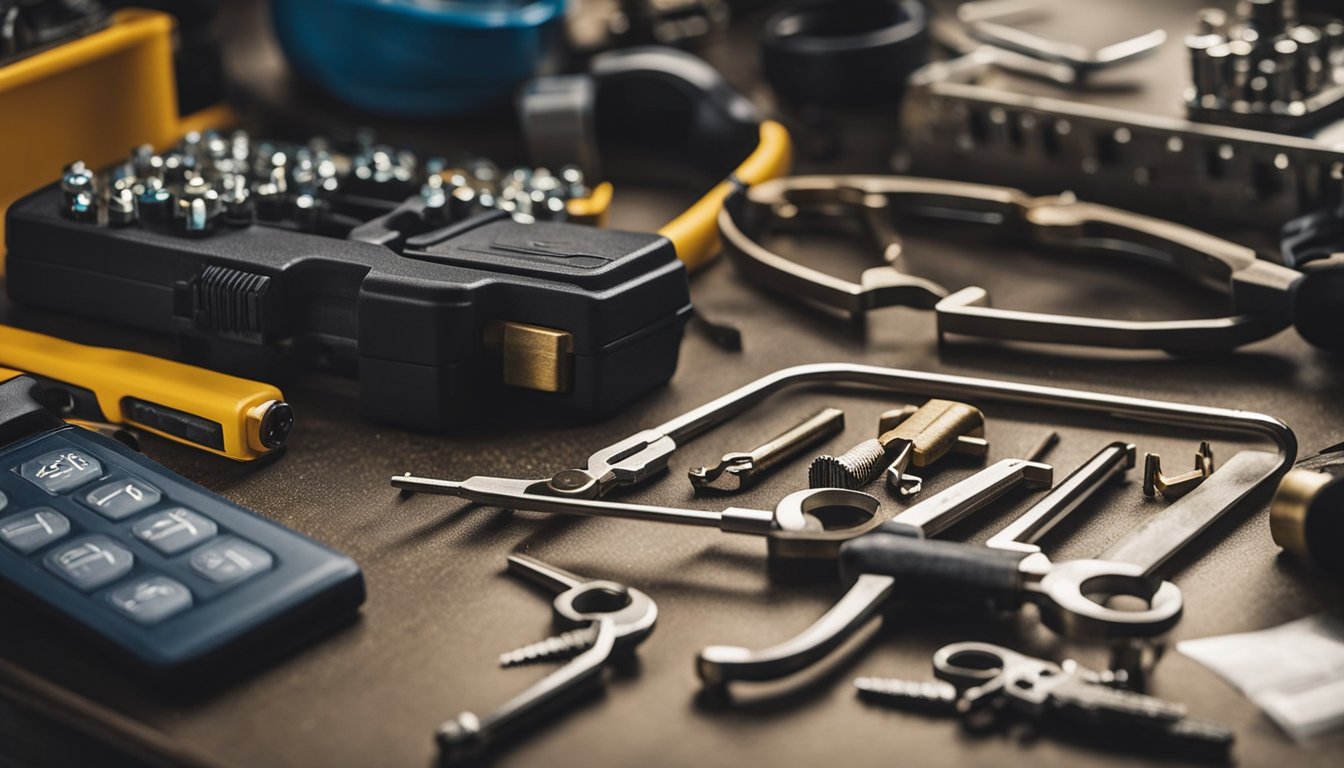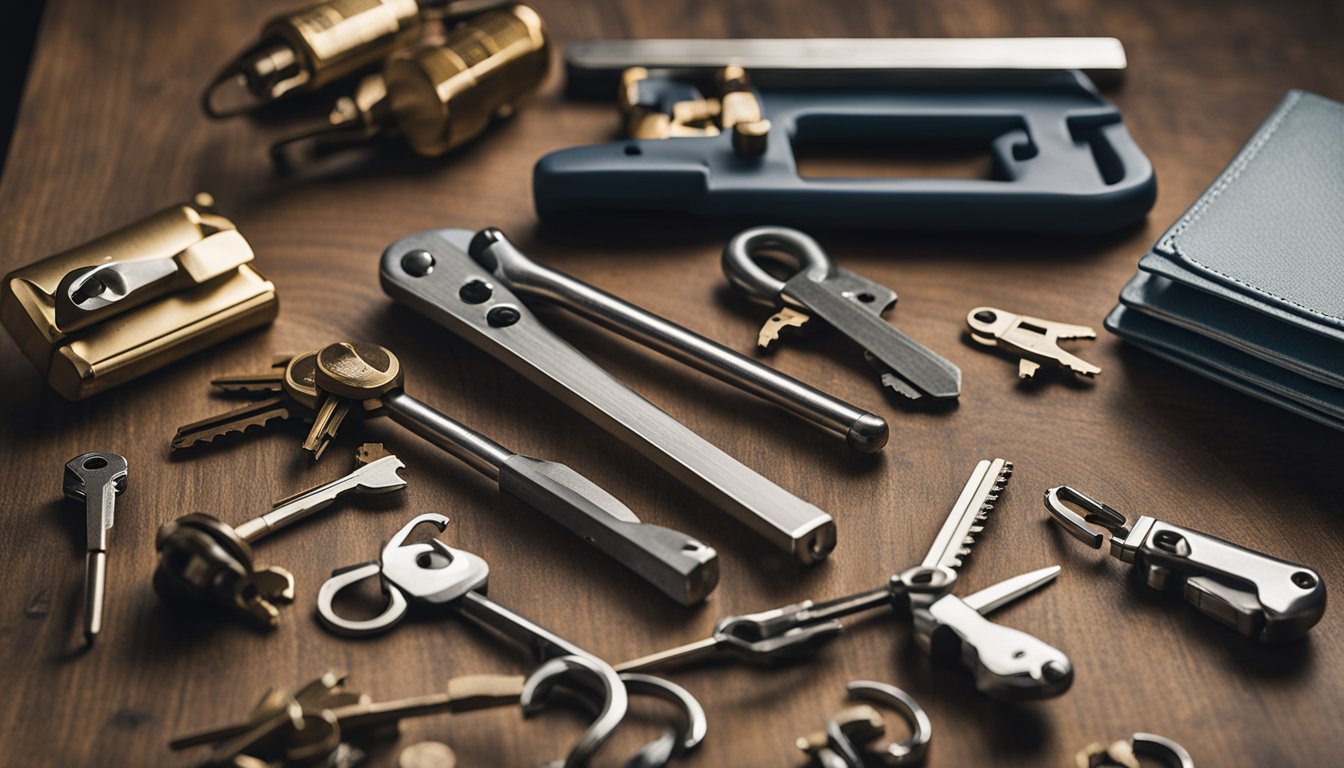Late updated: 04 Jan 2025 10:01
Written by: Elena Prescott
Guide To Choosing Quality UK Locksmith Tools: Essential Tips for Professionals
Choosing quality UK locksmith tools is essential for maintaining efficiency and reliability in our work. High-grade materials like stainless steel or high-quality aluminium ensure our tools not only withstand intense pressures but also resist rust and wear. With a well-curated selection, we can address a range of locking systems from traditional pin-cylinder locks to modern electronic mechanisms.

Our readers will appreciate the importance of selecting tools that incorporate the latest technologies, allowing us to tackle even the most intricate challenges swiftly. These innovations can significantly reduce time and effort, enhancing our ability to satisfy client needs with both speed and professionalism. In this article, we delve into the must-have tools every UK locksmith should invest in, ensuring we remain competitive and keep our clients happy.
The key to a successful locksmithing operation lies not just in the tools we choose, but also in understanding their proper usage and safety guidelines. By employing safe and effective techniques, we avoid unnecessary damage and ensure the job is done right the first time. Let us explore the indispensable tools and strategies that will elevate our locksmithing practice.
Key Takeaways
- Essential tools are critical for effective and reliable locksmithing.
- Selecting tools made from quality materials ensures durability and efficiency.
- Proper operation and safety guidelines are vital for optimal tool performance.
Essential Locksmith Tools and Their Uses
In the field of locksmithing, understanding the wide array of available tools is essential. These tools vary from basic picks to sophisticated key cutting machines, each serving a unique purpose in the trade.
Understanding Basic Picks and Tension Tools
Among the foundational tools, lock pick sets are indispensable. These kits usually include various picks like hook picks, ball picks, and rake picks. Each type of pick, such as the bogota rake or snake rake, is designed to manipulate the pins inside locks.
Tension tools are equally critical. These come in forms such as torque wrenches or tension wrenches. By applying tension to the lock’s cylinder, they maintain the position of the pins while the picks do their work.
Specialised Tools for Advanced Techniques
For more intricate jobs, locksmiths often use specialised tools. Bump keys and pick guns, including electric picks, allow for quicker manipulation of locks. They're often used in scenarios demanding efficiency and speed.
Other advanced picks include single-pin picks which provide precision. These tools allow us to lift individual pins within a lock for a meticulous touch, ideal for high-security systems.
Extraction and Key Cutting Devices
A key extractor or broken key extractor is used to remove broken pieces from a lock without damaging the mechanism. These tools are essential in situations where broken keys obstruct the lock’s function.
Key decoding and key cutting machines are fundamental in creating precise duplicates. Modern electronic key machines offer accuracy and can cut keys based on coded measurements, ensuring a perfect fit.
These tools are essential for crafting new keys or replicating existing ones to high standards of accuracy. The efficiency they bring to key cutting is indispensable in our line of work.
Operation and Safety Guidelines for Locksmith Equipment

In handling locksmith tools, adhering to precise operational and safety protocols is vital. These protocols ensure not only effective use but also the safety of professional locksmiths.
General Operational Guidelines for Locksmithing
When utilising locksmith equipment, correct technique is crucial. Our toolbox should contain only high-quality tools such as a locksmith tool kit, which includes essential items like lock picks and a flashlight. In lock picking, especially single pin picking, the tools must be used delicately to avoid damage.
Rekeying processes require precision, where understanding each lock’s mechanism is key to success. Organisation of tools within the toolbox allows for easy access, saving time during lockouts. Each tool has its unique function, and familiarity with these functions enhances operational efficiency.
Safety Precautions and Handling
Safety is paramount when dealing with locksmith tools. Utilising safety gloves can protect hands from cuts or abrasions while handling sharp tools. Keeping the workspace well-lit with a flashlight reduces the risk of errors.
Professional locksmiths should always follow manufacturer guidelines on tool use. Regular maintenance checks are necessary to ensure tools remain in good condition, preventing malfunctions during critical tasks. Additionally, appropriate training in tool handling reduces risk and ensures the safety of not only the user but also the surroundings.
By maintaining these safety standards, we protect ourselves and achieve reliable results in our locksmith duties.
Frequently Asked Questions

Choosing quality locksmith tools in the UK involves understanding essential features, verifying the reliability of brands, and maintaining tool longevity. Recognising the differences between professional and entry-level kits, and adhering to safety standards is crucial.
What are the essential features to look for in high-quality locksmith tools?
High-quality locksmith tools should be durable, offering precision and ease of use. Look for materials like stainless steel or hard-wearing alloys that resist wear and corrosion. Tools should also provide ergonomic designs for comfort and efficient operation over extended periods.
How can one verify the reliability of locksmith tool brands in the UK?
Brand reliability can often be confirmed through certifications, reviews, and industry recognition. Opt for brands with a strong market presence and those recommended by professional locksmith associations. Additionally, checking customer feedback and warranties can provide insights into a brand's trustworthiness.
What are the differences between professional and entry-level locksmith tool kits?
Professional locksmith tool kits typically include a wider variety of specialised tools designed for diverse applications, catering to experienced users. Entry-level kits, however, focus on basic tools, suitable for beginners or occasional use. These differences can impact both cost and functionality, depending on one's skill level and needs.
How does one ensure the longevity and maintenance of locksmith tools?
To ensure longevity, regular cleaning and proper storage are imperative. Investing in storage cases or tool organisers can protect tools from damage. Regularly inspecting for wear and tear and promptly servicing any damage will extend their lifespan. Some tools may also require lubrication to maintain smooth operation.
Can you recommend reputable suppliers or retailers of locksmith equipment in the UK?
In the UK, several reputable suppliers offer a range of locksmith tools. Companies like TradeLocks and Keyprint are known for their extensive selections and reliable customer service. Retailers with a strong online presence often provide detailed product descriptions and reviews to aid informed decision-making.
What safety standards should be considered when purchasing locksmith tools?
Purchasing locksmith tools necessitates attention to safety standards and certifications, ensuring the tools are compliant with UK regulations. Tools should be designed to reduce the risk of injury and accidents during use. Compliance with safety standards can typically be verified through manufacturer documentation or labelling.
